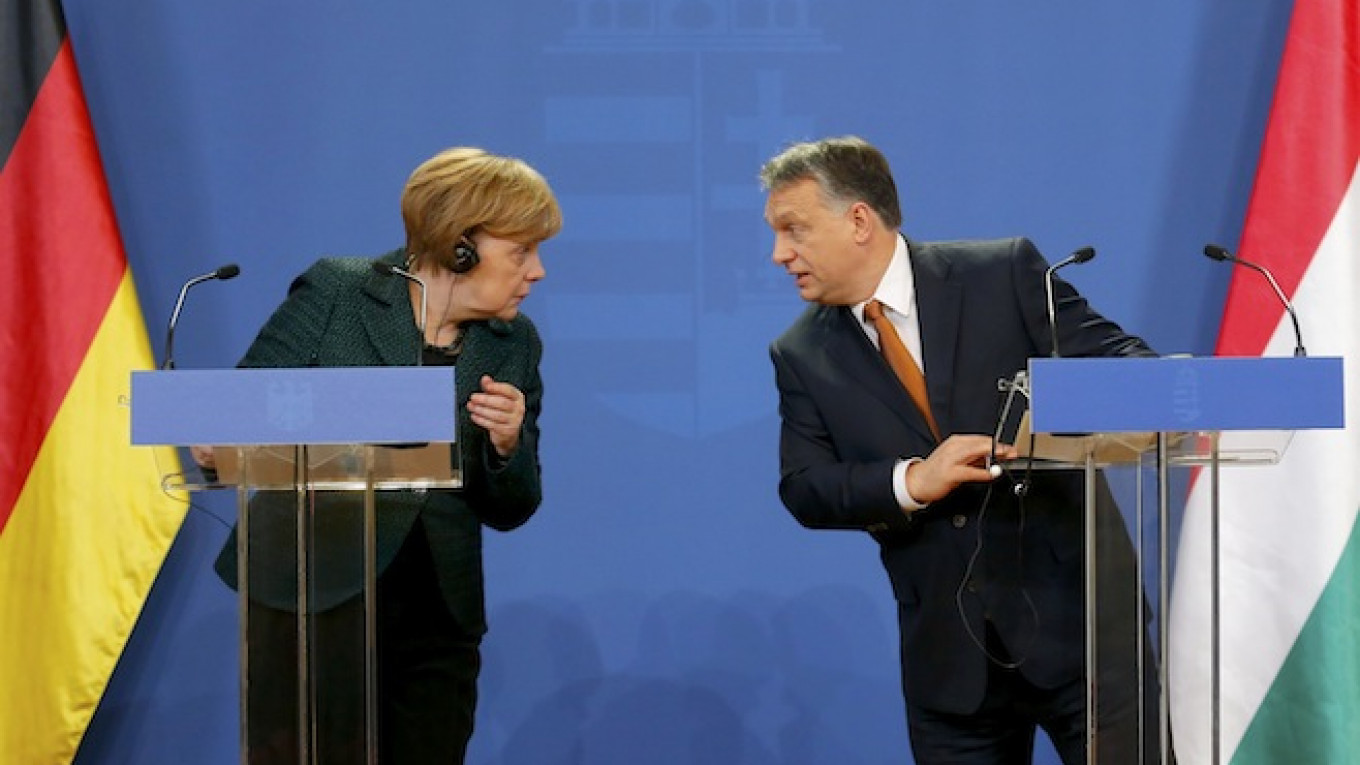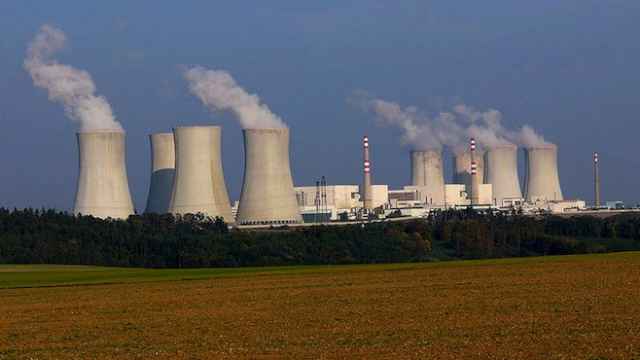Hungarian Prime Minister Viktor Orban said Wednesday that his main foreign policy goal was maintaining good ties with Russia and Germany, adding that the United States was an important partner but not the central focus of foreign policy.
A maverick leader whose warm relations with Moscow have irked European and American partners at a time of escalating conflicts in Ukraine, Orban said he sought Hungarian interests first, even in alliances such as the European Union or NATO.
His Fidesz party, holding a commanding Parliament majority since 2010, supported sanctions against Russia but Orban has said the EU was "shooting itself in the foot" with them.
"If we want sustained security, calm and peace for Hungary, then we have to calculate with two powers that are present in Central Europe forcefully and on the long run, Germany and Russia," he told television news channel Hir TV.
"So we establish our foreign policy strategy in a way that we have friendly, balanced, correct, fair and mutually beneficial relations with these two countries."
He said the United States —which has accused Hungarian public officials of corruption, sparking a dispute with Budapest — was less dependable as a foreign policy cornerstone.
"The Americans are important, but how strong this is, what weight they assign to the region, historically depends on their domestic politics," Orban said.
"We cannot build a long-term foreign policy strategy on their presence. Therefore we must primarily come to terms with Germany and Russia."
After a visit to Budapest by German Chancellor Angela Merkel on Monday, Russian President Vladimir Putin is expected in Hungary on Feb. 17. Orban said he expects to hammer out a new gas supply agreement with Putin.
Hungary obtains most of its gas from Russia.
"We would like to replace the current agreement that expires in 2015 with one that considers that we need gas but we do not know how ... prices will develop," he said.
"We do not necessarily have to sign a long-term agreement, but surely a flexible agreement that may mean flexible time-wise. We cannot maintain [government mandated] low utility prices without an agreement signed with the Russians."
He added that the government-mandated utility prices, a hallmark policy that helped the Fidesz party win re-election in 2014, were under a direct challenge from the EU as well, which wanted to limit state influence over energy prices.
A Message from The Moscow Times:
Dear readers,
We are facing unprecedented challenges. Russia's Prosecutor General's Office has designated The Moscow Times as an "undesirable" organization, criminalizing our work and putting our staff at risk of prosecution. This follows our earlier unjust labeling as a "foreign agent."
These actions are direct attempts to silence independent journalism in Russia. The authorities claim our work "discredits the decisions of the Russian leadership." We see things differently: we strive to provide accurate, unbiased reporting on Russia.
We, the journalists of The Moscow Times, refuse to be silenced. But to continue our work, we need your help.
Your support, no matter how small, makes a world of difference. If you can, please support us monthly starting from just $2. It's quick to set up, and every contribution makes a significant impact.
By supporting The Moscow Times, you're defending open, independent journalism in the face of repression. Thank you for standing with us.
Remind me later.






